Did you know that some of the projects can get you fined, or worse: arrested?! The more self-sufficient you become, the more projects you’ll undertake on your homestead.
Determining ones that may get you in trouble is time-consuming, which is why I did the hard work for you. There are no standard dos and don’ts, as every state has different laws.
But here are 10 common projects you should avoid before getting a permit or inquiring from local authorities.
Working on Water-Intensive Projects
Don’t plan on working on water-intensive tasks like car washing or power-washing the sidewalk before checking for municipal limitations, particularly in drier states where these activities may be restricted.
Water features like rain barrels, ponds, and bird baths are also water-intensive, and can increase the local mosquito population.
If your feature is connected to a water main or has a drain, you’ll almost certainly need a permit. This type of work will necessitate the use of a certified plumber and the acquisition of a construction permit.
Related: Is It Legal To Harvest Rainwater In Your State?
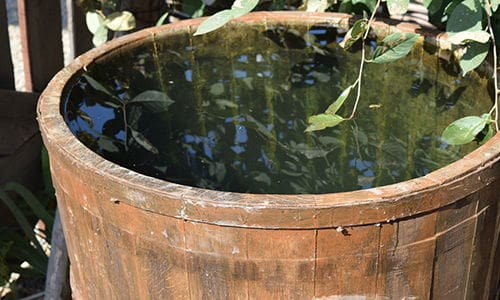
Burning Material
The burning of certain materials can result in foul-smelling and dangerous gases. Chemicals and smoke are not only offensive; they are dangerous to you, animals in the area, and people in the neighborhood.
Burning everyday things like cardboard, paper, and magazines may seem harmless, but they can produce a lot of smoke and emit toxins from the ink or adhesive.
Similarly, burning oak, sumac foliage, poison ivy, or even green leafy branches can also cause severe lung irritation.
If you get a permit or go-ahead from HOA, the fire must be overseen by an adult the entire time it’s burning. Shifting winds can cause damage to your neighbor’s property, as well as your own.
Local ordinances also prohibit you from lighting a fire in your backyard amid heavy winds.
Replacing Doors and Windows
A permit is almost always required when installing a new exterior door or home window where there was previously none.
Many building departments demand that the replacement window or door match the current window or door’s measurements, while others demand a specific aesthetic or material match.
This is a very visible area of your home, similar to the roofing, so gather the relevant papers before you begin.
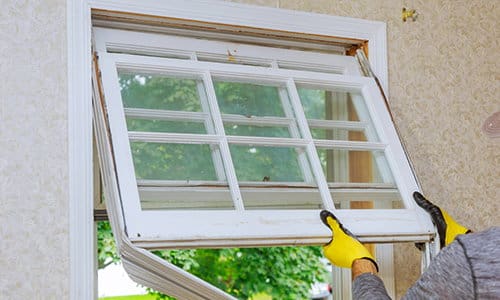
Constructing a Fire Pit
Whether you’re adding a portable fire pit or a permanent structure, you must consider the location carefully.
Portable fire pits should be set up on a fire-resistant surface, such as a brick patio or stone pavers. If you position it directly on grass or a wooden deck, flying embers can cause a fire.
Both permanent and portable fire pits should be placed at least 10 ft. from your house. You’ll also want to ensure your pit isn’t too close to any low-hanging branches or other potentially flammable plants.
Many jurisdictions require a distance of 25 ft. between the fire pit and your house, deck, vehicle, shed, or other flammable material.
Your town or homeowner’s association may demand a site review if you plan to install a permanent fire pit. In addition, your homeowner’s insurance company may compel you to declare your fire pit if you live in a wildfire-prone location.
To avoid costly mistakes, consult with local fire officials before starting your job.
Related: How To Make A Simple Fire Pit In Your Backyard
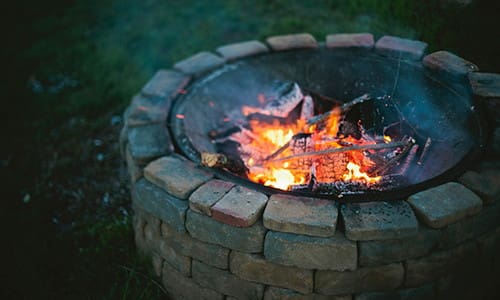
Adding a New Fence
Many people believe they can add something as simple as a new fence to their property without obtaining a permit.
That is true in several cities. Municipalities, on the other hand, require permits and pre-build inspections before work can begin.
Some establish criteria for the fence’s height, material, or appearance. Others merely want to check that the fence posts are correctly seated.
Soil Grading
Exterior work might sometimes feel like a game than actual restoration. Changing the grading of your land is an excellent illustration of this.
The scale of the work, once again, makes a difference. You should be alright if you spread soil along the side of your house to prevent a damp basement.
You’re more likely to run into permit complications if you bring in a truckload of soil to elevate an area of your yard. That is especially true if rainfall is channeled to your neighbor’s cellar.
Permits for grading work are usually easy to get, as they only require a sketch to ensure that your plan doesn’t create a more significant problem than the one you’re trying to solve.
Always be safe and double-check whether a permit is required before beginning work. Before you dig, always contact local authorities to have underground utilities marked.
Related: What I’ve Learned Homesteading With My Family of 8
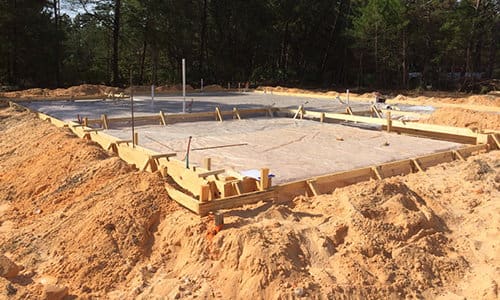
Switching From Electrical to Gas Stoves
It should come as no surprise that working on gas lines necessitates a permit and the services of a licensed plumber.
After all, gas lines that have been improperly installed or repaired are a danger not only to you and your family but also to the entire neighborhood. If you have any doubts, look up “gas line explosions” on the internet to see how shady work can lead to disaster.
When purchasing a gas stove, inquire about the requirements with the salesperson.
Even if your location doesn’t require a permit, hire a professional to do the job if you’re not comfortable working with gas lines.
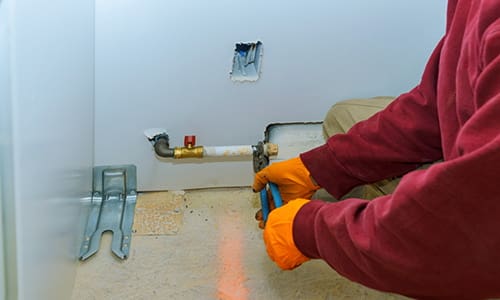
Constructing a Birdfeeder
Although feeding birds may appear to be a simple backyard enjoyment, some HOAs prohibit it.
In some parts of the nation, the feeding station can attract other animals such as mice, feral cats, wild turkeys, and even bears if seed spills onto the deck or yard. These unwelcome guests can go on to wreak havoc around the neighborhood.
Adding a Deck to Your Landscape
Most DIY-ers can build a simple ground-level deck, but you’ll almost certainly need a permit for the job. A critical step before moving on is to complete any needed footer inspections.
A deck, for example, might be freestanding or attached to your house or pool. Most decks have a weight-bearing structural subfloor, necessitating a building permit but not local planning permission.
If you’re installing timber slats straight onto a concrete slab to create a new, rustic deck-like addition, however, you won’t need a building permit because there’s no supporting structure to build.

Building an Outdoor Kennel for Your Pet
Some localities impose restrictions on the number of pets you can have, the size of the dogs, the breed, and whether or not you can build an outdoor kennel for your pet.
Animals that are more uncommon, such as backyard chickens or rabbits, dwarf goats, or pot-bellied pigs, may be outright prohibited or require special permits.
Avoid fines or jail time by understanding local pet rules
The best approach to find out if you need permission to do anything in your yard is to call your local permitting office or HOA. You can also check these departments’ websites, which usually have an FAQ section.
You may also like:
 How To Save Every Drop Of Water On Your Property
How To Save Every Drop Of Water On Your Property
If You See This Plant in Your Backyard, Burn It Immediately! (Video)
Best Dog Breeds For Homesteaders
How To Build A Small Storage Shed From Pallets
25 Wood Craft Projects You Should Have In Your Backyard
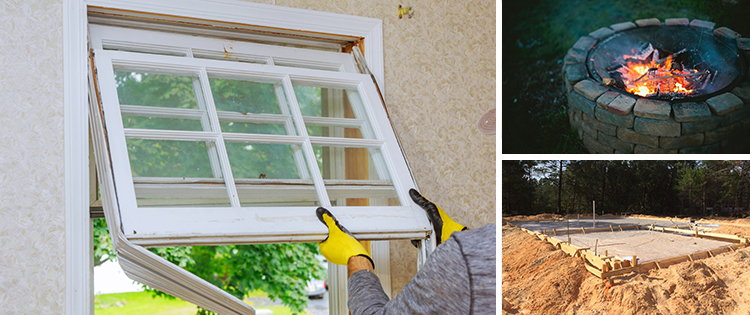







Lorem ipsum 123 789